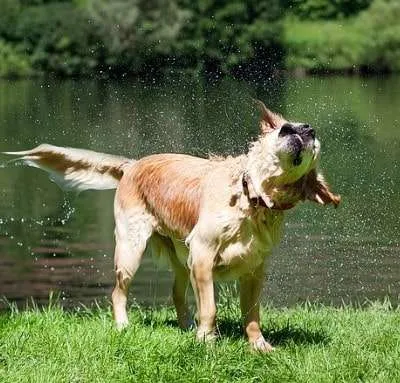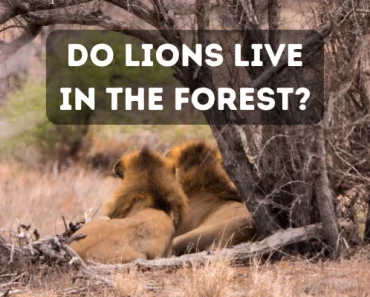Lions can live in and adapt to many different environments. They live in a variety of many different habitats that include grasslands, forests, deserts, open plains, and more.
Lions are apex predators that thrive in open environments where they have mastered their skills of hunting for a long, long time.
A savanna or savannah is a mix of woodlands and grasslands with hot, dry climate conditions that mainly consist of more open areas and don’t include thick vegetation.
Since savannas are more open areas with lots of visibility, lions live in the savanna because it provides them with much more open space to hunt and roam than that in dense and thick environments such as forests and jungles.
Do Lions Live in the Savanna?
Yes, lions live in the savanna because it is a perfect environment for lions to hunt and thrive. Since lions travel in prides and hunt strategically in environments that provide more open space, savannahs are a perfect environment for their hunting skills.
Savannas provide open space that in turn, provides higher visibility for lions to search for, stalk, and hunt their prey.
Lions have thrived in the savanna for a long time and will continue to thrive because they have developed many of their abilities and skills to live in these open environments.
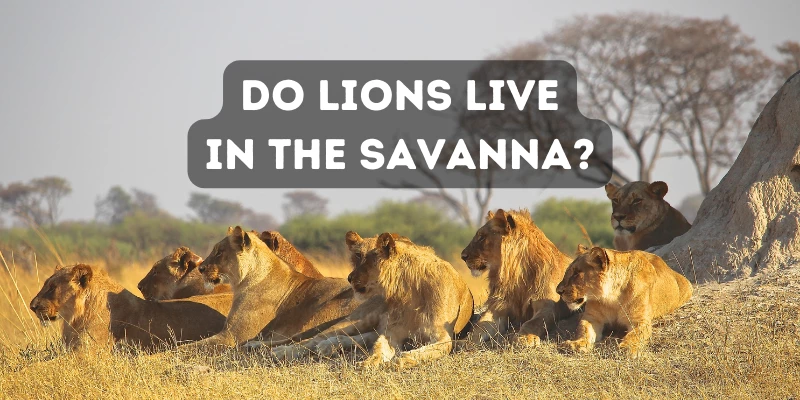
Since lions are found in groups called prides (which can consist of 10 or more lions), there are a lot of mouths to feed.
More mouths to feed requires either a lot of prey or much bigger prey to catch.
Due to this, it makes more sense for lions to live in the savanna because savannas are where most of the bigger prey is found and this prey is found in higher quantities compared to other environments such as forests and jungles.
Why Do Lions Live in the Savanna?
Lions live in the savanna and have lived in the savanna for a very long time. Since lions have lived in the savanna for some time, they have honed and mastered their skills for such an environment.
The majority of lion prey can be found in the savanna since lions prey on animals such as antelopes, wildebeests, zebras, and more.
Lions will also prey on smaller animals but their ideal prey will be much larger animals in mass numbers found in the savannas.
A lion’s pride will not be very successful if they only have the capability of hunting smaller animals like hares, mice, and birds. This will not be able to sustain a pride of lions for very long.
Lions need open space and visibility to hunt more effectively and thrive in their environments. This is most sustainable in an environment such as a savanna, which they are already well-adapted for.
If lions were limited to environments that include thick brush and other thick vegetation such as rainforests, lions may be able to survive in small prides or as solitary animals, but this would be surviving rather than thriving.
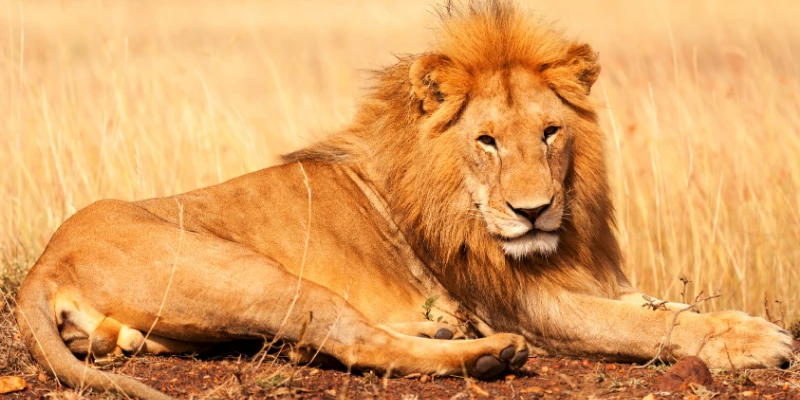
However, lions are not typically solitary and are the only cats that actually live in groups called prides.
Since tigers are more solitary animals, they can thrive more in environments such as forests where lions have a much harder time adapting and thriving.
Where Do Lions Live in the Savanna?
Except for a small population of lions that live in the Gir Forest in India, the majority of lions live in the savanna of Africa just south of the Sahara.
Lions prefer living in environments that include open grasslands and woodlands, which suits their hunting skills and abilities.
Lions are animals that roam and hunt in more of the open areas of the savanna.
Some of the largest populations of lions in Africa can be found in Angola, Botswana, Kenya, Namibia, South Africa, Tanzania, Zambia, and Zimbabwe.
Some of the biggest lions in the world can be found in sub-Saharan Africa.
Why Are Lions Important to the Ecosystem in the Savanna?
Lions are important to the ecosystem of the savanna because lions help keep the population of other animals in check, such as buffalo, wildebeests, zebras, and antelopes.
The reason it is important for lions to balance the population of other animals is that if there were no lions to balance the population of other animals, these other animals would devastate the grasslands and other parts of the ecosystem.
Without lions in place to help with the balance, there would be too many animals and too little food. Lions help thin out the population of other animals and allow for the ecosystem to continue.
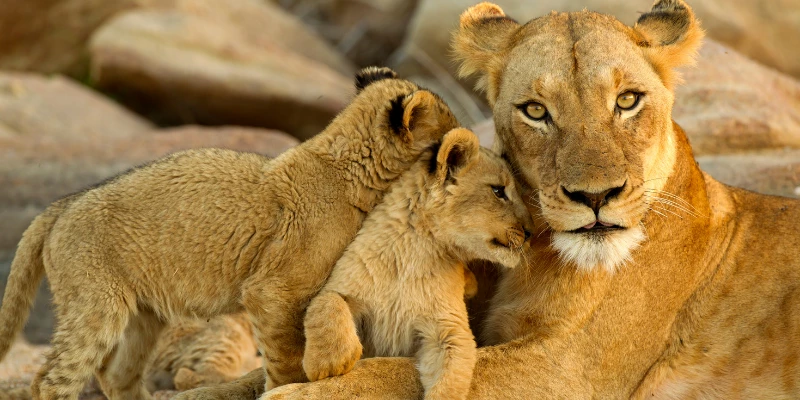
If you take away lions, the other animals will thrive more and eventually cause a strain on the ecosystem because their numbers would grow too high and there wouldn’t be enough resources in the ecosystem to support the higher populations of animals.
The savanna does have other predators such as cheetahs, hyenas, leopards, and wild dogs. These predators also help keep the balance within the ecosystem.
But lions are the key to keeping this balance. Without lions, the system may break down entirely and the savannas would never be the same.
Recap
In this article, you learned that lions live in the savanna, and they live there for good reason.
Lions thrive in the open environments of the savannas and have adapted their hunting skills to be most successful within this type of environment.
Without lions living in the savanna, the ecosystem would look very different and may fall apart due to the imbalance of prey and predators.
Other animals consume resources within the savanna that could be devastated without the lions keeping the balance in check by preying on these animals.
Lions prey on these animals and restore the balance so that the number of animals left is able to survive and have enough resources to continue on.
That is just the balance of life and how ecosystems work. Take one kink out of the chain and the chain is no longer functional. This is very similar to ecosystems.
Most ecosystems rely on the balance of predators and prey to keep everything in line and to ensure there are enough resources for all.
To conclude, lions live in the savanna for many different reasons but one of the most important reasons is that lions are highly skilled and capable in this environment where they can hunt successfully and keep the balance within the system so the system can continue without failing.
